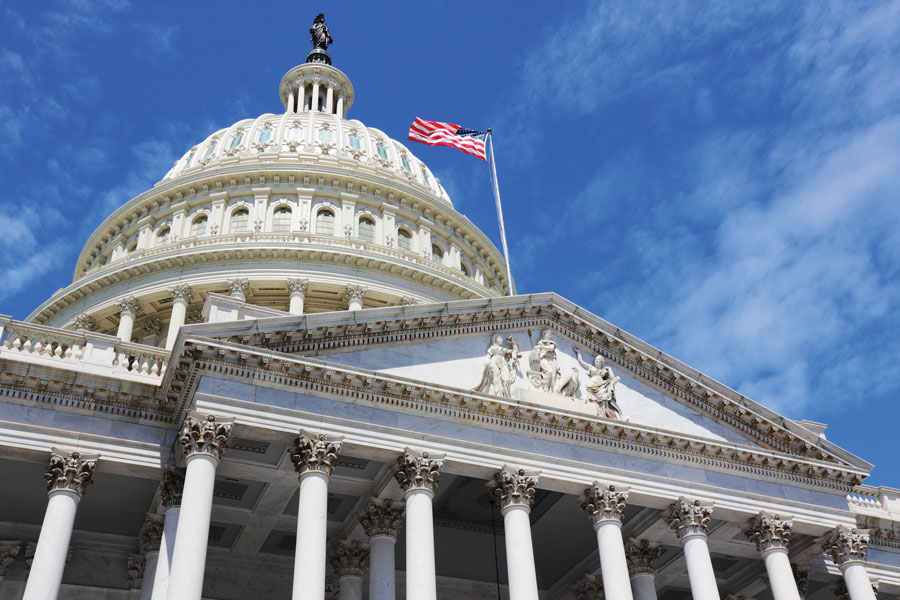

Wall Street banks grappling with the implosion of Bill Hwang’s investment firm spent Monday briefing U.S. regulators as Washington starts to dig into one of the biggest fund blowups in years.
The Securities and Exchange Commission summoned the banks for hasty meetings on what triggered the forced sale of more than $20 billion of stocks linked to Hwang’s Archegos Capital Management, said people with knowledge of the matter who asked not to be named in discussing private conversations. The calls also involved the Financial Industry Regulatory Authority, with officials quizzing brokerages about any impacts on their operations, potential credit risks and other threats, said one of the people.
Hwang’s brokers included Credit Suisse Group AG, Nomura Holdings Inc., Goldman Sachs Group Inc. and Morgan Stanley. The speed at which Archegos ran into trouble and Wall Street’s swiftness in liquidating its positions shocked traders, while prompting a race at U.S. agencies to keep up with events.
“We have been monitoring the situation and communicating with market participants since last week,” an SEC spokesperson said in emailed statement. A Finra spokesman declined to comment.
The banks either declined to comment or didn’t immediately respond to messages.
“This is a challenging time for the family office of Archegos Capital Management, our partners and employees,” Karen Kessler, a spokesperson for the firm, said in an emailed statement. “All plans are being discussed as Mr. Hwang and the team determine the best path forward.”
Credit Suisse and Nomura warned investors earlier Monday that they may face “significant” losses after an unnamed U.S. hedge fund client defaulted on margin calls. Goldman told investors and clients that any impact from Archegos is likely to be immaterial, a person familiar with the matter said.
The blowup has prompted questions about oversight, particularly because Archegos amassed tens of billions of dollars in stock bets without disclosing its positions to other market participants.
Hwang’s family office did so by entering into derivative transactions with banks that gave him exposure to companies without buying actual shares. He also maximized his wagers by borrowing significants amount of money from his brokers, increasing risks to banks. Among stocks sold starting March 26 were GSX Techedu Inc. and Discovery Inc.
The episode has rekindled fears of earlier hedge fund failures that blew holes in lenders’ balance sheets. Still, the industry is arguably much better equipped to handle such meltdowns because of rules implemented after the 2008 financial crisis that forced banks to hold significantly more capital as a buffer against losses.
The fallout reached the highest corridors of power in Washington, with White House Press Secretary Jen Psaki telling reporters that the Biden administration was monitoring the situation. She referred specific questions to the SEC.
Hwang is no stranger to the Wall Street regulator, which joined prosecutors in accusing him and his former hedge fund, Tiger Asia Management, of insider trading in 2012. In resolving the case, the firm pleaded guilty and paid more than $60 million in penalties. Hwang started Archegos after the SEC barred him from managing money on behalf of clients as part of the settlement.

By listening for what truly matters and where clients want to make a difference, advisors can avoid politics and help build more personal strategies.

JPMorgan and RBC have also welcomed ex-UBS advisors in Texas, while Steward Partners and SpirePoint make new additions in the Sun Belt.

Counsel representing Lisa Cook argued the president's pattern of publicly blasting the Fed calls the foundation for her firing into question.

The two firms violated the Advisers Act and Reg BI by making misleading statements and failing to disclose conflicts to retail and retirement plan investors, according to the regulator.

Elsewhere, two breakaway teams from Morgan Stanley and Merrill unite to form a $2 billion RIA, while a Texas-based independent merges with a Bay Area advisory practice.
Orion's Tom Wilson on delivering coordinated, high-touch service in a world where returns alone no longer set you apart.
Barely a decade old, registered index-linked annuities have quickly surged in popularity, thanks to their unique blend of protection and growth potential—an appealing option for investors looking to chart a steadier course through today's choppy market waters, says Myles Lambert, Brighthouse Financial.
